Search Results
Showing results 481 to 500 of 596

Make a Garbage Bag Kite
Source Institutions
Make a kite out of a garbage bag, shower curtain, painting tarp--anything light, thin, flexible and plastic!

Crash Landing!
Source Institutions
In this activity, groups cut out and sort cards showing items recovered from a crash landing on the Moon. The 12 items range from food and water to rope and matches to a self-inflating life raft.
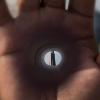
Hole in Your Hand
Source Institutions
Create an illusion where it appears that your hand has a hole in it. You'll see the results from when one eye gets conflicting information.
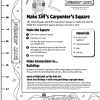
Make Ziff's Carpenter's Square
Source Institutions
In this Cyberchase activity, learners make carpenter's squares and use them to measure square corners. Learners cut out the carpenter's square template and attach it to tagboard.
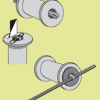
All Wound Up
Source Institutions
In this activity, learners build a racecar using only a rubber band, spool, straw, and paper clip! This racer is a classic toy that zips across a flat surface.
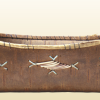
It's Natural
Source Institutions
This activity introduces learners to Native Americans as people who depended upon nature in the past and continue to emphasize the importance of nature in the present.

Make a Light Fountain
Source Institutions
In this optics activity, learners make a "light fountain" from a clear plastic bottle, flashlight, and other simple materials.
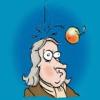
Falling Faster
Source Institutions
In this activity about gravity (page 6 of the PDF), learners will come to understand how all objects will fall at the same rate, but that air will slow things down.
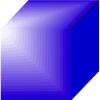
Scaling Cubes
Source Institutions
In this activity, learners explore scale by using building cubes to see how changing the length, width, and height of a three-dimensional object affects its surface area and its volume.
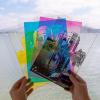
The Three Little Pigments: Science activity that demonstrates the primary and secondary colors of lightScience activity that demonstrates the primary and secondary colors of light The Three Little Pigments Know your C, M, Y, and K.
Source Institutions
Align four color transparencies, each one a single color (cyan, magenta, yellow, and black), and see a beautiful full color image.
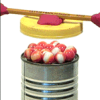
Bearings for Your Whirligig
Source Institutions
Experiment with friction and make bearings for a whirligig! This activity is a nice introduction to friction and bearings and demonstrates why bearings are useful for spinning.
Ride on a Slide: Toys or Tubes Ride Slopes and Angles
Source Institutions
This activity is a hit for family events and all ages—some will finish in 45 minutes; others can go on for hours.
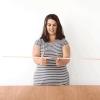
Center of Gravity
Source Institutions
A simple, yet fun activity that lets learners find the center of balance of a ruler (or any long thin object). Developed by the Exploratorium and no assembly needed.
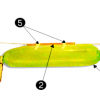
Balloon Rocket
Source Institutions
Experiment with force and pressure by building a balloon rocket. When launched, the balloon will run a track wherever you place the string.
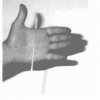
Holding Charge
Source Institutions
In this trick, learners discover how to stick a straw to the palm of their hand, window door, or anywhere using static electricity.
Healthy Buffet
Source Institutions
In this nutrition activity (page 2 of the PDF), learners will be split up into food groups (Fruit, Vegetable, Meat & Beans, Grain, and Dairy) and draw a picture of their favorite food from their g
Parts of an Antelope
Source Institutions
In this matching activity, learners play a game where they match words to the corresponding body parts of an antelope's basic anatomy.
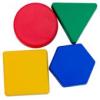
Copy Cats
Source Institutions
In this math activity, learners use what they know about shapes to copy a friend's hidden picture. Learners create a design out of pattern blocks and then hide their picture behind a screen.
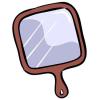
Mirror, Mirror on the Wall: Angles of Reflection
Source Institutions
In this optics activity, learners work in pairs to explore how mirrors work. Learners use tape to mark the angles needed to see each other's reflection in a wall mirror.
Hexagon Hunt
Source Institutions
This activity gets learners looking at 6-sided shapes in nature, including the cells of a beehive, as well as other shapes.
